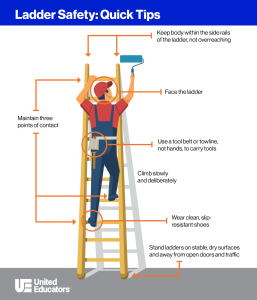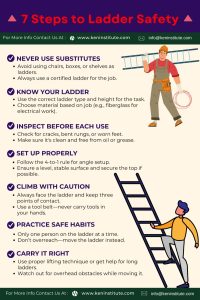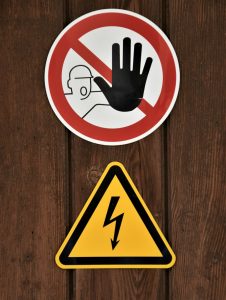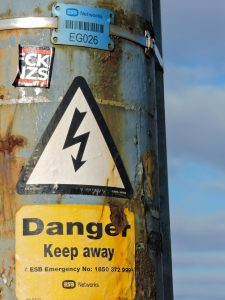Are you aware of the simple rules that can keep you and your loved ones safe around electricity? Electrical safety rules are essential guidelines designed to protect you from shocks, fires, and other dangers that come from improper use of electrical devices.
Ignoring these rules can lead to serious injuries or costly damage to your home. By understanding and following these easy-to-remember safety tips, you can make your environment much safer. Keep reading to discover the key electrical safety rules that everyone should know—your safety depends on it.
Basic Electrical Safety Rules
Basic electrical safety rules are essential to prevent accidents and protect yourself and your property. Understanding these simple guidelines can keep you safe around everyday electrical devices and wiring. Even small actions, like how you plug in your devices or handle cords, can make a big difference.
Avoid Overloading Circuits
Overloading circuits is a common cause of electrical fires and outages. You should never plug too many devices into one outlet or power strip. Think about how many watts each device uses and keep the total below the outlet’s limit.
Have you ever noticed a power strip getting warm? That’s a warning sign. Unplug some devices or spread them across different outlets to reduce the risk.
Use Proper Insulation
Insulation protects you from electric shocks and prevents short circuits. Always check that wires and cords have no cracks or exposed copper. Replace any damaged cables immediately to avoid danger.
Using electrical tape temporarily can help, but don’t rely on it long term. Proper insulation is your first line of defense against accidents.
Keep Electrical Devices Dry
Water and electricity do not mix. Always keep your electrical devices and outlets dry to avoid shocks and short circuits. Never touch electrical equipment with wet hands or operate them near water sources.
If a device falls into water, do not reach for it until the power is off. This simple rule can save your life in emergency situations.

Credit: www.esfi.org
Safe Handling Of Electrical Equipment
Handling electrical equipment safely prevents accidents and injuries. It reduces risks of shocks, fires, and damage. Following clear rules helps keep you and others safe. Always treat electrical devices with respect and care.
Unplug Devices Before Repairs
Always unplug electrical devices before fixing or cleaning them. Power running through devices can cause shocks. Removing the plug cuts off electricity, making repairs safer. Never try to repair a device while it is still plugged in.
Use Tools With Insulated Handles
Use tools that have insulated handles for electrical work. Insulation prevents electric currents from passing through your body. It acts as a barrier against shocks. Choose tools made for electrical tasks to stay protected.
Wear Protective Gear
Wear proper protective gear when working with electrical equipment. Use rubber gloves and safety glasses to avoid injuries. Protective clothing can shield you from sparks or hot surfaces. Always prepare yourself before starting any electrical task.
Electrical Safety In The Workplace
Electrical safety in the workplace protects workers from electric shocks and fires. It reduces accidents and keeps the work environment safe. Understanding and following safety rules is crucial for every employee. Simple actions can prevent serious injuries and costly damage.
Regular Equipment Inspections
Checking electrical tools and machines regularly prevents hazards. Look for damaged cords, loose connections, and worn parts. Replace or repair faulty equipment immediately. Inspections help spot problems before they cause accidents. Keep records of all inspections for safety audits.
Follow Lockout/tagout Procedures
Lockout/tagout stops machines from turning on during repairs. It protects workers from unexpected electric power. Use locks and tags on switches to show work is in progress. Only authorized staff should remove these locks. This process ensures safe maintenance and prevents injuries.
Train Employees On Safety Protocols
Teach workers the right safety steps around electricity. Training builds awareness about risks and safe practices. Use clear instructions and simple language for better understanding. Regular drills reinforce knowledge and prepare staff for emergencies. Well-trained employees contribute to a safer workplace.

Credit: www.teacherspayteachers.com
Preventing Electrical Fires
Electrical fires are more common than you might think, and they can cause devastating damage in a matter of seconds. The good news is that most of these fires are preventable with simple precautions. By being mindful of how you handle electrical equipment and your home setup, you can significantly reduce the risk.
Avoid Using Damaged Cords
Damaged or frayed cords are one of the most common culprits behind electrical fires. Even a small crack in the insulation can expose live wires, creating a potential hazard. If you notice a cord with visible wear, stop using it immediately and replace it.
Never try to repair damaged cords using tape or quick fixes. These temporary solutions can fail when you least expect it, turning your home into a fire hazard. Always opt for a new cord instead—it’s a small price to pay for safety.
Keep Flammable Materials Away
How often do you place items like paper, cloth, or curtains near electrical outlets or appliances? Many people don’t realize how quickly these materials can ignite. Always keep flammable materials at least a few feet away from electrical devices.
This is especially important for appliances that generate heat, such as space heaters or irons. A little distance can go a long way in preventing a fire from starting. Take a moment to inspect your home—are there any hotspots you need to address?
Install Smoke Detectors
Smoke detectors are your first line of defense in case an electrical fire does break out. They can alert you early, giving you precious time to act. Make sure you have smoke detectors installed in key areas like the kitchen, bedrooms, and near electrical panels.
Test your smoke detectors regularly to ensure they’re working. Replace the batteries at least once a year, or as recommended by the manufacturer. A functioning smoke detector can mean the difference between a minor incident and a major disaster.
Emergency Response Tips
Emergency response is crucial when dealing with electrical accidents. Quick and correct actions can save lives. Knowing what to do reduces panic and prevents further harm. Stay calm and follow safety steps to handle electrical emergencies effectively.
How To Handle Electrical Shocks
Do not touch the person if they are still in contact with the electrical source. Turn off the power supply immediately. Use a non-conductive object like a wooden stick to separate the person from the electricity. Check if the person is breathing and has a pulse. Call for help right away.
When To Call Emergency Services
Call emergency services if the person:
- Is unconscious or unresponsive
- Has burns or visible injuries
- Is having trouble breathing or chest pain
- Shows signs of shock such as pale skin or weakness
- Has a seizure or severe muscle pain
Do not wait to see if symptoms worsen. Immediate professional help is vital.
First Aid For Electrical Injuries
After ensuring the scene is safe, start first aid. Cover burns with a clean, dry cloth. Do not apply ointments or break blisters. Keep the person warm and comfortable. If the person is unconscious but breathing, place them in the recovery position. Perform CPR if breathing or pulse stops. Monitor the person until emergency responders arrive.

Credit: www.facebook.com
Electrical Safety For Kids At Home
Protecting kids from electrical hazards at home should be a top priority. Children are naturally curious and often unaware of potential dangers. Simple precautions can prevent accidents and create a safer environment. Below are essential tips to ensure your home is electrically safe for kids.
Use Outlet Covers
Install outlet covers on all unused electrical outlets. These covers prevent children from inserting objects into sockets. Choose tamper-resistant covers that are difficult for small hands to remove. Avoid leaving exposed outlets in areas where children play or crawl.
Teach Safe Practices
Teach kids to stay away from electrical outlets and cords. Explain the dangers of playing with electrical appliances. Use age-appropriate language to ensure they understand. Supervise young children to enforce these safe practices.
Keep Devices Out Of Reach
Place electrical devices like chargers and hairdryers out of children’s reach. Store these items in high cabinets or secured drawers when not in use. Avoid leaving cords dangling, as kids may pull on them. Always unplug devices that are not in use to reduce risks.
Frequently Asked Questions
What Are Common Electrical Safety Rules To Follow?
Electrical safety rules include using insulated tools, avoiding overloaded circuits, and turning off power before repairs. Always wear protective gear and avoid water near electrical equipment. Regular inspections help ensure safety.
Why Should I Avoid Water Near Electrical Devices?
Water conducts electricity and increases the risk of shocks and short circuits. Keep electrical devices dry to prevent accidents and ensure safety.
How Can I Prevent Electrical Hazards At Home?
Prevent hazards by checking wiring regularly, using surge protectors, and avoiding damaged cords. Teach children about electrical safety rules.
What Safety Gear Is Needed For Electrical Work?
Safety gear includes insulated gloves, rubber-soled shoes, and protective goggles. These reduce risks of shocks and injuries during electrical tasks.
Conclusion
Electrical safety rules protect you and others from harm. Always follow these rules to avoid accidents. Use tools and equipment carefully and check them often. Never touch wires or devices with wet hands. Stay alert and respect all warning signs.
Safety starts with simple habits every day. Keep learning about safe electrical practices. Small steps can prevent serious injuries or fires. Remember, safety is everyone’s responsibility. Stay safe and protect your home and workplace.








